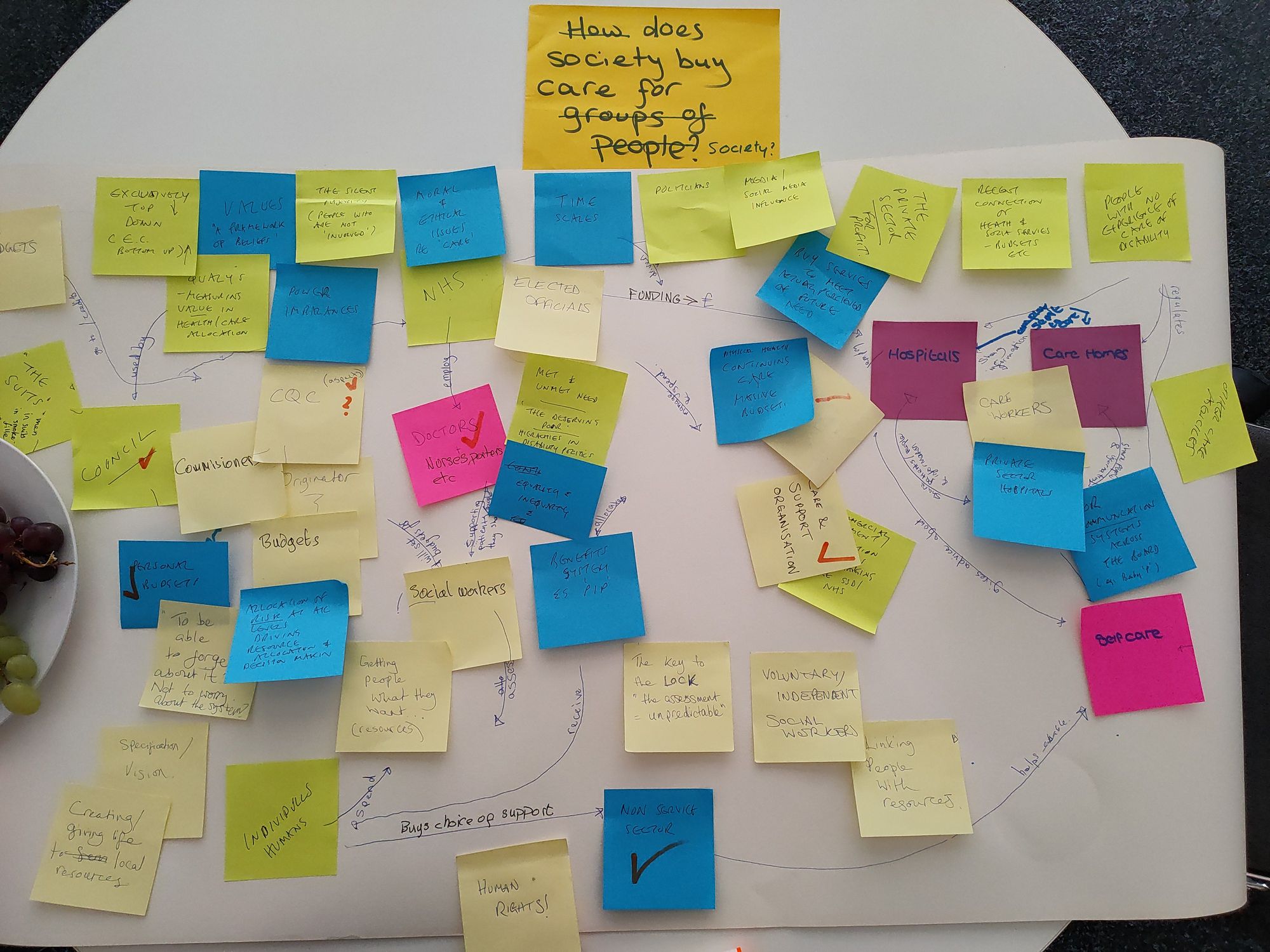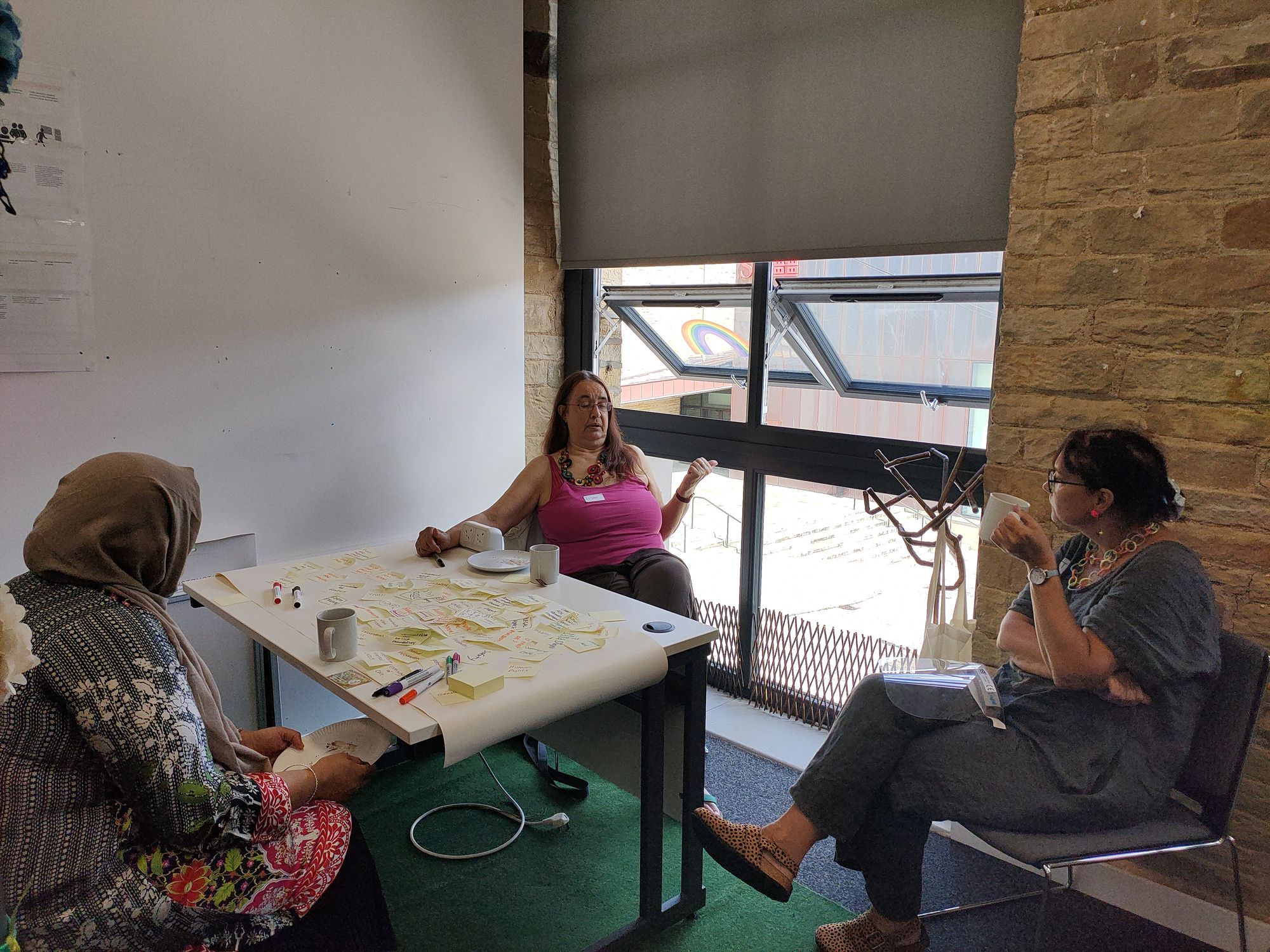Reflective contribution

This blog post has been authored by Matthew Higgs, who gives independent care and support as a member of Equal Care and is a Social Work Lecturer with many years of experience working in the care system.
I found the Buying our Care day helpful on a number of different levels.
I’d like to explore a few issues and try to unpack what they meant for me - individually and as a professional, working in the ‘care system’.
The workshop was typically ‘co-operative’ with different cultures, ages, givers and receivers of care, seen and hidden (dis)abilities and personal perspectives represented and everyone looking to pool their ideas and experiences.
In 2019/20, the total expenditure on adult social care by Local Authorities in the UK was £23.3 billion (1). To put this in perspective, the whole GDP of Cambodia, a medium sized Asian country was only c.£19 billion in 2020 (2).
‘As of 2020, Carers UK estimates there are around 13.6 million people caring through the pandemic’. (3)
I was reminded by the content of the workshop that although vast sums of (tax payers) money are being spent in providing care and support to significant numbers of people (and their families), ‘the person in the street’ rarely takes time to think about the day to day mechanics involved in the process, who are the key decision makers, what are the rules and protocols and importantly, could things be done differently.
Many people in receipt of care are simply glad to get some kind of support and do not want to rock the boat - or have many other more pressing issues in their lives - by querying where and how the process works.
We are fortunate that we have groups like People First and ADARA who have lobbied long and hard for change (across the board) for many years.
The focus of the care framework seems always to be budget driven and one of the issues that came up in our discussion was to try to move the emphasis towards more understanding of purpose, (collaborative) access and impact to the purchasing and commissioning of quality services.
I remember in my more radical days, the idea of ‘Service-land’ - a parallel universe where people with health needs/disabilities lived, never seeing or accessing the ‘real’ world. Services still seem to be thought of as hermetically sealed entities and not community coherent as the Coop is trying to do.
At the University, I always push students (where appropriate) to look at ‘non-service solutions’ (made easier with the advent of personal budgets) rather than always looking at the clinical, more traditional options eg: choosing the Art Class or Yoga session in the local church hall rather than having to go to the Local Authority Care Centre (10 miles away in a special bus) and usually only able to mix with other people labeled as having a disability (‘disability by diagnosis’).
The Rich Picture exercise provided an opportunity for participants to contribute their ideas and thoughts in building an inter-connected mass of information about how elements of the present care purchasing system worked (or didn’t work), and why we thought this was.

Simple ideas were combined with wider thinking to produce a smorgasbord of issues which we then tried to make links between.
We covered a fairly large sheet of paper with post-it notes and wobbly lines which showed the number of routes that were linked together in the buying (selling?) of care business.
One issue that jumped out for me was that in the tangled picture was that the role of the individual carer/cared for person could not easily be seen - and that opportunities for them to actively contribute to how their care and support was provided were largely unseen.
Semantics and our use of (disability related) language cropped up regularly in the discussion with the group feeling that a fairly radical session with the dictionary was needed to re-establish more get-at-able and rational terms and phrases that were more sensible than many in use in the ‘commissioning’ system today.
The session helped me to review how easily my own professional language can so easily become distorted and vague, further confusing the debate.
The workshop was not just a ‘one off’ but part of an inter-connected series of sessions across the year run by the Coop, so there will be an opportunity to build on ideas of change that emerged on the day.
A useful and worthwhile event where I learned a lot from other participants and from changes to my thinking both during the discussions and reflectively, in the following days.
- https://www.kingsfund.org.uk/audio-video/key-facts-figures-adult-social-care
- https://knoema.com/atlas/Cambodia/GDP
- https://www.carersuk.org/news-and-campaigns/press-releases/facts-and-figures

